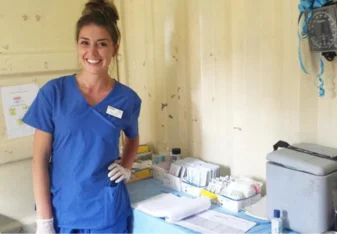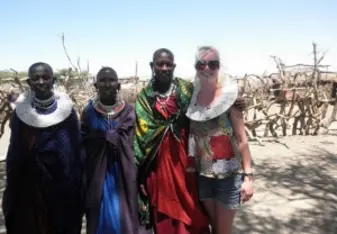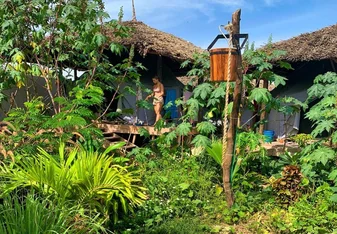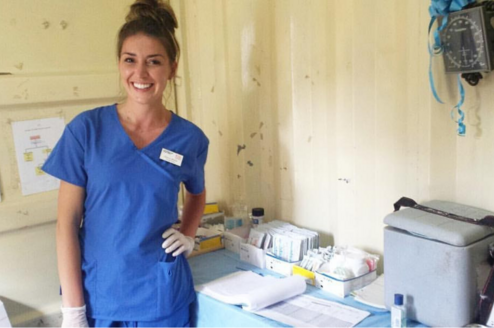Human Rights & Legal Aid Internship - Tanzania
About Program
The purpose of this program is to ensure that less fortunate groups and others with special needs are made aware of their rights and that these legal rights are adequately protected. The program will also provide psychosocial support to women groups, widows, vulnerable children, orphans and their foster parents.
This project allows participants to work with a local Tanzanian non-government organisation and legal aid clinic, which is run entirely with the help of local and foreign volunteer workers. The work carried out provides a very real benefit for a disadvantaged section of Tanzanian society. Women in Tanzania, though legally enjoying many of the same rights as men, are traditionally not believed to have any such rights and many women are left destitute once their male family members are gone. The only lasting way to change this ingrained perception is through education of both men and women. The workshops carried out by this organisation seeks to break down the cultural barriers keeping women in ignorance and poverty.
The Legal Aid clinics also coach and empower clients with the necessary knowledge for legal and court procedures to enable them to represent their cases in court.









Response from Global Nomadic
Hi Nadia,
Thankyou for your Feedback. I know that we have exchanged many emails in
regards to your experience however I thank you for bringing the whole
experience to light once more. As explained we take all complaints very
seriously have now fully investigated this.
Firstly, the reason we sent your first email to the project coordinator was to be able to fully investigate this and get him to explain himself. It was not meant in
any other way than to get to the bottom of the situation.
Secondly, in regards to the safety issues, we have doubled checked with numerous previous volunteers and other volunteer organisations working in the area as to their opinion on the safety of the area. Here is one of the replies from a Nicola Price who volunteered in 2012;
"Hi,
I did not consider the area around the volunteer house as unsafe but then I
did not take any risks, ie. walking at night, taking short cuts, carrying
lots of money etc.
I felt very safe at my project, both within the school and travelling to
and from the school.
Hope this helps."
We are very sorry to hear of the robbery of the person you were with,
however it is impossible to guarantee safety anywhere in the world, and you
must be careful everywhere that you go. I have travelled extensively around the world and know from experience that you must not stand out as a rich tourist or walk down dodgy alleyways with valuables in your pocket. However luck is always a factor and petty robberies are an unfortunate reality associated with traveling.
Thirdly, in regards to the placement, it is difficult to guarantee that you
will be useful to the project. The main aim of the internship is to expose
you to a Human Rights organisation working in Tanzania. Firstly, if you do
not have years of experience behind you, you cannot expect to be able to
make a huge difference to the human rights situation in Tanzania, and to
the work of the organisation. The idea is to give you an insight into their
work and help you to further your career prospects by adding the experience
to your portfolio. You cannot expect to be an integral part of their
organisation, especially if you are there for just a few months. As with
any internship, you get out what you put in, and if you can find something
which makes you useful in conjunction with the local staff, than that would
be ideal. It is possible that this was not the right placement for you,
and for this we apologize.
In regards to the money charged by the project, they are not a non-profit
organisation, and have wages to pay, an office to upkeep and many other
expenses which you are perhaps not aware of. Whilst it is possible to have
stayed elsewhere for less, this is what they have determined necessary to
house participants and keep them working at the various projects they work
with. The price was agreed with you initially, and should not now be an
issue in retrospect. $220 per week all inclusive is a fraction of the price
charged by some other organisations for similar experiences.
Lastly, here is another testimonial from Gertjan de Flou, who just returned
from Tanzania after attending the Medical project.
"As a medical student, I really wanted to go volunteering at a hospital in
a developing country. In my search for a proper organization, Global
Nomadic stood out. The staff was so helpful. They gave me all the
information about the project, helped me with my flight tickets, the
vaccinations, brought me into contact with the local staff, informed me
about the placement in Arusha, and so on. They made it so easy for me.
I was placed in an apartment in Arusha. Being in contact with the other
volunteers at the apartment was for me one of the highlights of my 5 weeks
in Tanzania. The apartment was so good: the rooms, the food, the entourage,
it was perfect!
The medical project was also really good. Although there were a lot of
volunteers when I was there (july), the doctors and nurses made you feel
very welcome, asked you questions, let you do some vaccinations, taking
blood pressure, assist in some delivery’s and other operations. During my
stay at the hospital, I learned a lot of things and practiced my skills.
For me, it was an incredible experience.
I would definitely recommend Global Nomadic for everybody who wants to go
volunteer in a foreign country. The program and the placement is so well
organized, plus they really make you feel at home. Also, the local staff is
very helpful in organizing to go on safari, relax at Zanzibar or do the
Kilimanjaro trekking"
Thanks again for the great experience!
Gertjan De Flou "